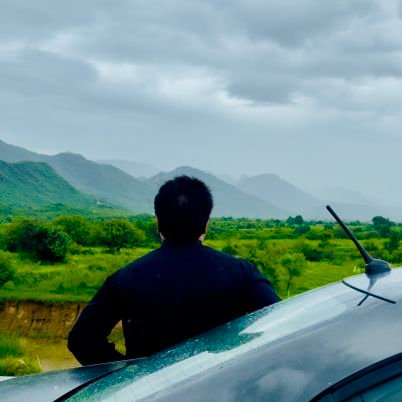
Osama Zeeshan
@osama_zeeshan
Followers
24
Following
4K
Media
0
Statuses
53
🎓 Peace & Conflict Studies | Researching geopolitics, security, and conflict resolution | Focus on Pakistan, Muslim world & global peacebuilding
Joined June 2016
Double games? No, double fronts. We fought the war the world started, and paid the price others never dared to, surviving two decades of everyone else’s mess. Pak fought terrorists on its soil, India fought headlines on TV. One bleeds, the other brags. Know the difference
No one cares tbh The problem is with double games When you don’t take a side and play this many double games no one will believe you Also our main problem is was ttp not the govt itself which we failed to assassinate while india successfully eliminated their terrorists
0
0
0
10/10 Key takeaway: India used the U.S. invasion to push its regional agenda, ignoring Afghan sovereignty and the real humanitarian costs. Strategic self-interest over ethics.
0
0
3
9/10 Bottom line: India’s “support” for the U.S.” was less about fighting terrorism and more about securing its own influence in Afghanistan. Soft power? Or opportunism?
1
0
3
8/10 Fun fact: India’s embassy in Kabul (largest in South Asia) was operational till 2021, showing India’s deep stakes in Afghan stability
1
0
1
7/10 Example of alignment vs independence: -2001–2021: Supported U.S. counterterrorism & reconstruction. -2021 withdrawal & Taliban return: India emphasized civilian safety & safeguarding projects, signaling a more independent stance.
1
0
1
6/10 Nuance: India avoided military entanglement. Its messaging stressed development, reconstruction, and humanitarian aid, essentially “soft power alignment” rather than full military support.
1
0
1
5/10 Diplomatically, India consistently supported U.S.-led initiatives at the UN, including sanctions on Taliban leaders and funding for humanitarian projects
1
0
1
4/10 India also trained Afghan security forces in counter-terrorism operations, aligning with the U.S.’s fight against militancy without sending troops on the ground.
1
0
1
3/10 India poured billions into Afghanistan post-2001. Examples: -Zaranj-Delaram highway (200 km) funded by India, crucial for trade. -Salma Dam in Herat, boosting local power supply. -Schools & hospitals across Kabul, Kandahar & Jalalabad.
1
0
1
2/10 Strategic angle: India has always viewed Afghanistan as a counterweight to Pakistan. A Taliban-free Kabul meant limiting Pakistan-backed influence and ensuring Indian interests in the region.
1
0
1
Did India support the U.S. narrative in Afghanistan? Let’s unpack the story After 9/11, the U.S. launched its invasion of Afghanistan. India publicly supported the intervention, as a fight against global terrorism.
1
2
4
True sovereignty isn’t about shaking new hands; it’s about remembering who stood by you when no one else did.
0
0
3
Afghanistan’s stability was never threatened by Pakistan’s geography but by global powers exploiting it as a chessboard. By aligning with those who once justified occupation under the guise of “war on terror,” the IEA risks repeating the cycle of dependency it once resisted.
1
0
2
The same state that financed the Northern Alliance, supported US narratives during the invasion, and consistently backed anti-Tbn factions in the region, is now being welcomed as a “partner.” This isn’t strategic balance, it’s a miscalculation born of short-term political optics.
1
0
2
History has a strange way of testing alliances. The IEA’s engagement with India might appear as diplomatic diversification, but beneath the surface lies a troubling contradiction.
Afghan FM Amir Khan Muttaqi, will be landing in India tomorrow. Interestingly he had a travel ban which was lifted after the prison exchange with US and only for Indian travel. He will be staying there for eight days. Yes - eight days. On the other hand - A campaign by GDI
1
1
6
The new empire doesn’t need armies, it uses NGOs, sanctions, and storytelling. The goal is the same: obedience dressed as civilization
0
0
2
When the West invades, it’s called intervention. When others resist, it’s called aggression. When allies oppress, it’s called reform.
1
0
2
The Invisible Empire: How Liberalism Became the New Colonialism Empires don’t occupy land anymore. They occupy minds. Colonialism didn’t die , it evolved. Now it comes wearing the mask of “freedom,” “human rights,” and “global order.”
1
2
3
Humanity keeps building walls to feel safe, yet ends up more isolated. The global conflict isn’t between East and West anymore, it’s between who we are and who we fear becoming.
0
0
3
The same logic now applies to people. When one group asserts identity, others feel erased. From nationalism to gender wars, the psychology is identical
1
0
3


